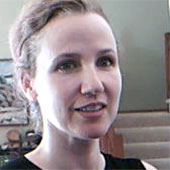Growing Social Skills: How to Steer Young Children Toward a Successful Adulthood
- Tweet

Imagine the not-so-distant future, when your child is old enough to start school.
Is he good at understanding his feelings? Does she cooperate with her peers? Is your child helpful? Able to overcome little setbacks? Solve everyday problems without a lot of adult supervision?
Socio-emotional skills help more than social interactions, they help students learn! Tweet this!These questions concern social and emotional competence, not your child's knowledge of numbers or the ABCs. But socio-emotional skills are crucial for school readiness. In fact, these skills may tell us something about a child's chances in life: Kids who show good citizenship in kindergarten tend to have better outcomes as adults.
A recently published study offers evidence. Back in 1991, researchers asked kindergarten teachers to fill out a questionnaire about their students' social skills. Then, using this information, the researchers assigned each student a score (from 1 to 5), with higher scores indicating greater social competence.
Nineteen years later, the researchers tracked down more than 600 people who'd participated in the study as children, and they found links between kindergarten ratings and adult achievement:
For every 1-point increase on the 5-point scale, kids were more likely to have achieved success and avoided trouble. They were more likely to have graduated from high school on time, and less likely to have ever been arrested. They had twice the odds of earning a college degree by the age of 25, and they were more likely to have a full time job.
Why should kindergarten social-emotional competence predict adult outcomes? The answer seems straightforward. Friendly, cooperative kids have an easier time getting along with peers, connecting with teachers, and keeping out of trouble. As a result, they may find school more rewarding, and feel more motivated to stay the course.
But there is probably more going on. To show social competence in the classroom, kids have to control their impulses. They have to listen, focus, and follow directions. And these abilities do more than smooth social interactions. They also help students learn.
It seems, then, that social competence is linked with variety of crucial skills that kids need to succeed. Can we help kids acquire this skill set? You bet. Research suggests that early experiences have an important influence on the development of social competence. For instance:
- Long before they've learned language, babies benefit from being treated like thinking, feeling, conversation partners. When we talk to them about what they see, and respond appropriately to their emotions and gestures, we teach babies about the give-and-take of communication.
- Toddlers become more friendly and generous when we make them feel they are part of a community of responsive, caring people.
- Preschoolers develop better self-control -- and engage more frequently in acts of kindness -- when we actively encourage them to show compassion toward others.
And children can learn a lot from social play. Playing together teaches children how to cooperate, and games like "Simon Says" require kids to listen carefully and follow directions -- good preparation for the classroom.
So there's a lot we can do to help children develop social competence. By showing them what good citizenship looks like -- and giving them opportunities to practice their growing skills -- we can steer our kids towards a happier, more successful future.
References:- Blair C. (2002). School readiness: Integrating cognition and emotion in a neurobiological conceptualization of children's functioning at school entry. American Psychologist. 57(2): 111–127.
- Jones, D.E., Greenberg, M., and Crowley, M. (2015). Early Social-Emotional Functioning and Public Health: The Relationship Between Kindergarten Social Competence and Future Wellness. American Journal of Public Health. e-View Ahead of Print. doi: 10.2105/AJPH.2015.302630
- Cortes Barragan R and Dweck CS. 2014. Rethinking natural altruism: simple reciprocal interactions trigger children's benevolence. Proc Natl Acad Sci U S A.111(48):17071-4.
- Brooker I., Poulin-Dubois D. (2013) Is parental emotional reliability predictive of toddlers' learning and helping? Infant behavior & development. 36(3): 403-418.
- Flook L., Goldberg S.B., Pinger L., and Davidson R.J. (2015). Promoting prosocial behavior and self-regulatory skills in preschool children through a mindfulness-based Kindness Curriculum. Dev Psychol. 51(1):44-51.
- Kochanska G. (2001). Emotional development in children with different attachment histories: the first three years. Child Development. 72(2):474-90.
- Leerkes E.M., et al. (2009). Differential effects of maternal sensitivity to infant distress and nondistress on social-emotional functioning. Child Development. 80(3):762-75.
- Lillard A.S., et al (2013). The impact of pretend play on children's development: a review of the evidence. Psychol Bull.139(1):1-34.
- Nix R.L., Bierman K.L., Domitrovich C.E., and Gill S. (2013). Promoting Children's Social-Emotional Skills in Preschool Can Enhance Academic and Behavioral Functioning in Kindergarten: Findings from Head Start REDI. Early Educ Dev. 24(7).
- NPR. Nice Kids Finish First: Study Finds Social Skills Can Predict Future Success. 2015. Available at: http://www.npr.org/2015/07/16/423605191/nice-kids-finish-first-study-finds-social-skills-can-predict-future-success
- Stright A.D., et al. (2008). Infant temperament moderates relations between maternal parenting in early childhood and children's adjustment in first grade. Child Development. 79(1): 186-200.
- Tominey S., McClelland M. (2011). Red Light, Purple Light: Findings From a Randomized Trial Using Circle Time Games to Improve Behavioral Self-Regulation in Preschool. Early Education & Development 22(3): 489-519.

